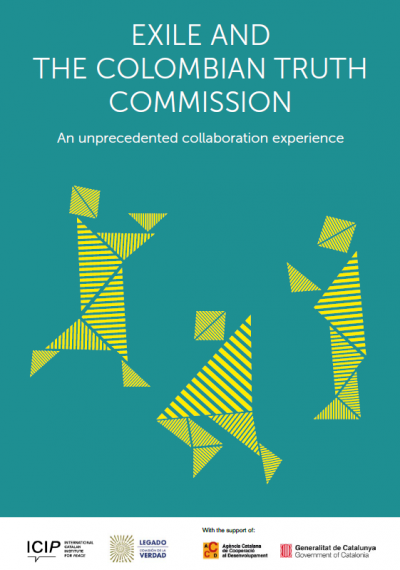
Exile and the Colombian Truth Commission. An unprecedented collaboration experience explains how the participation of the exile community in several European countries was coordinated through the interview participants, the nodes and the internodal groups. It also describes the key elements of the process such as active listening, a psychosocial approach, recognition and the role of art as a healing and transformative element, among others.
The publication aims to compile the legacy of the Commission and the lessons learned from the process; recognize the work of the people, organizations and institutions involved in this experience; contribute to the recognition of “the Colombia outside of Colombia”; and provide the international community with a tool to design future participation processes of exiled, refugee and migrant populations in processes of peace, memory and reconciliation. In consonance with the spirit of the Colombian peace agreement, the central focus of this work was the prominent role of the victims, a key element in this peacebuilding process.
The methodology used to elaborate the document combined a meeting for analysis and reflection held in Barcelona, virtual focus groups with participants in several European countries, personal interviews, and the compilation of documentation.
About the Colombian Truth Commission
The Commission for the Clarification of Truth, Coexistence and Non-Repetition of Colombia began its mandate in November 2018 with the aim of clarifying the patterns and causes of human rights violations during the Colombian armed conflict, promoting the recognition of victims and contributing to coexistence. The Commission’s work culminated in 2022, with the presentation of its Final Report and socialization among the actors involved in the process.
One of the many innovations of this Commission, in comparison with the dozens of commissions that have previously been created in other countries, was the commitment to work with the exile community – around one million people who had to leave the country as a result of the armed conflict. This unprecedented mandate in the context of transitional justice entailed the need to coordinate an infrastructure in support of the Commission abroad.
Between 2019 and 2022, ICIP acted as the Commission’s Technical Secretariat in Europe. During this period, ICIP provided technical and financial resources, and coordinated the three elements of participation abroad: the interviewers, the meeting and coordinating spaces – known as nodes – and the thematic working groups, called internodal groups.
